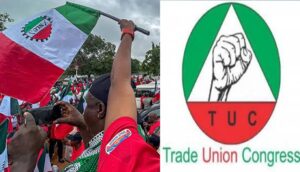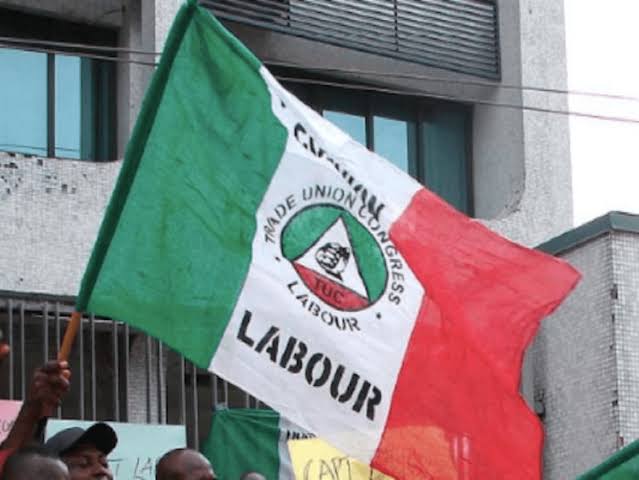Following a breakdown in negotiations with the federal government over a new minimum wage, The National Labour Congress (NLC) and Trade Union Congress (TUC) have initiated an indefinite strike starting Monday, June 3, 2024, This move underscores the deep-seated discontent among Nigerian workers amid escalating living costs.
The labour unions’ decision to strike comes after prolonged discussions with the government failed to yield a consensus on minimum wage adjustments. The unions initially proposed a new wage of N615,000, a significant increase aimed at mitigating the financial strain caused by policies such as the removal of fuel subsidies. This policy change, implemented last year by President Bola Tinubu, has led to a sharp rise in the cost of goods and services, exacerbating the economic challenges faced by workers.

After several rounds of negotiations, the unions moderated their demand to N495,000. However, the federal government countered with an offer of N60,000, arguing that the unions’ proposal was unsustainable. This substantial gap in proposed figures reflects the broader economic and fiscal challenges confronting Nigeria.
The federal government has maintained that its offer is the most feasible, given the current economic conditions. Additionally, the organized private sector, part of the tripartite committee on minimum wage, has aligned with the government’s stance, emphasizing the need for a sustainable wage structure.
In a bid to avert the strike, the National Assembly convened a last-minute meeting with union leaders. Senate President Godswill Akpabio expressed regret that efforts to persuade the unions to suspend the strike were unsuccessful. TUC President Festus Usifo echoed this sentiment, noting that while they would relay the appeals from the National Assembly to their members, they lacked the immediate authority to call off the industrial action.
The strike is poised to disrupt several critical sectors. Affiliates of the NLC, including the Nigeria Union of Petroleum and Natural Gas Workers (NUPENG), the National Union of Electricity Employees (NUEE), and the Maritime Workers Union of Nigeria (MWUN), have instructed their members to ensure total compliance. Similarly, the TUC has directed senior staff associations, including PENGASSAN and ASCSN, to participate fully.
This widespread shutdown is expected to impact fuel distribution, healthcare services, banking operations, and other essential services, potentially bringing the nation to a standstill.
Meanwhile, Attorney General of the Federation (AGF) and Minister of Justice, Lateef Fagbemi, has urged the labour unions to reconsider their stance. In a letter dated June 1, 2024, Fagbemi described the strike as premature and illegal, emphasizing the ongoing negotiations within the Tripartite Committee on minimum wage determination. He called on the unions to return to the negotiation table to avoid inflicting further hardship on Nigerians.
Fagbemi’s appeal highlights the complexity of the situation, noting that any new national minimum wage must balance the interests and capacities of all employers, not just the federal and state governments.
The initiation of this nationwide strike underscores the urgent need for a resolution to the wage dispute. As the strike unfolds, its impact on essential services will likely increase pressure on both the government and the unions to find a viable compromise. The coming days will be critical in determining whether a balanced solution can be reached that addresses the economic realities of both workers and employers across Nigeria.




